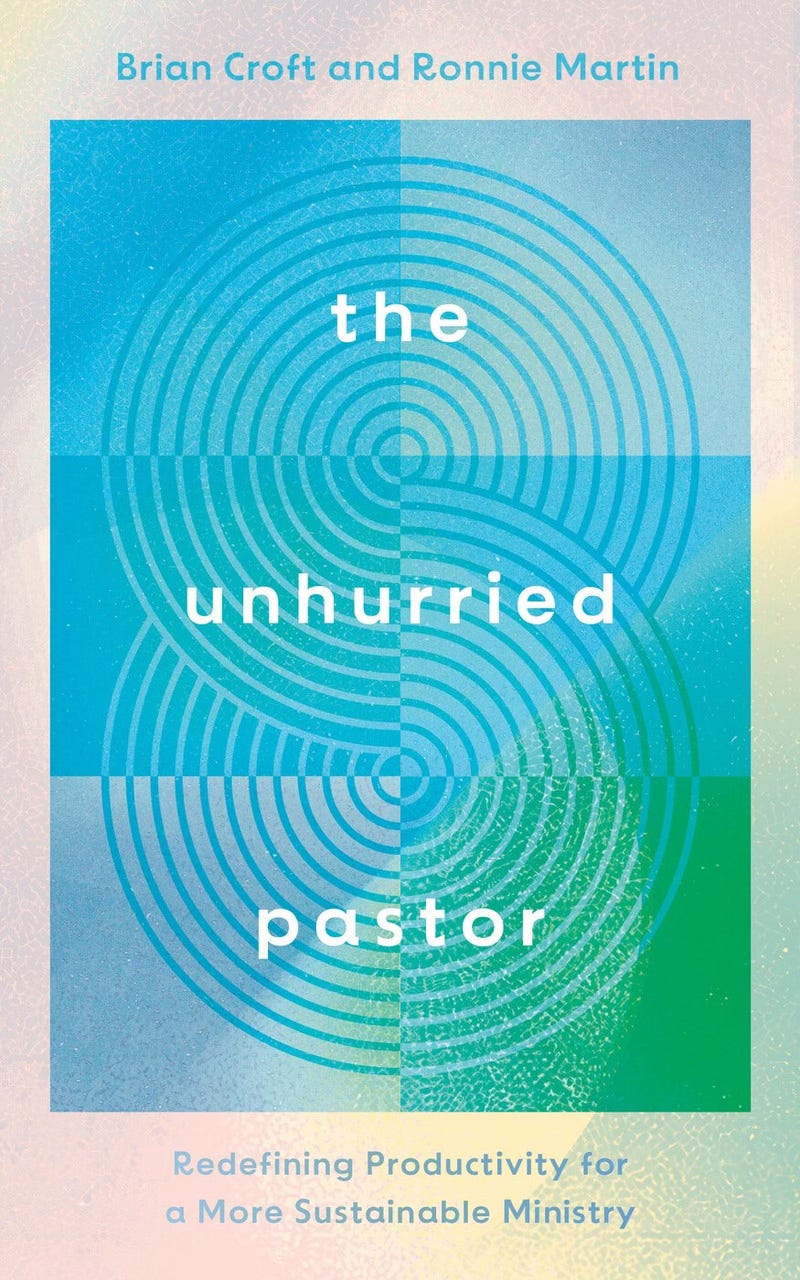Book Review: The Unhurried Pastor
Redefining Productivity for a More Sustainable Ministry
Years ago, Eugene Peterson said that “The adjective busy set as a modifier to pastor should sound to our ears like adulterous to characterize a wife or embezzling to describe a banker. It is an outrageous scandal, a blasphemous affront.”1
Those are strong words, to say the least! He would go on to argue that it is a pastor’s vanity and laziness that leads to all this busyness. In their book, The Unhurried Pastor, Brian Croft and Ronnie Martin have picked up where Peterson left off, but with a slightly softer tone.
In their work with many depressed and burned-out pastors, Croft and Martin discovered a common link: these pastors could not see their limitations and embrace them. In other words, they failed to remember that they are human beings before they are pastors.
Pride may be the driving force behind this frantic busyness. To admit to human limitations, a pastor must humble himself. Martin admitted, “Embracing my humanity feels boring, average, mundane, uninspiring, and full of opportunities to not live up to the potential that I might imagine for myself as a 21st-century pastor” (20-21).
The Unhurried Pastor is divided into three main parts: preparation, power, and pursuit. Ronnie Martin authors the first two, and Brian Croft undertakes the third. Their overall goal is “a redefining of how the work of a pastor is done so that it will lead to joy and longevity for the pastor” (13).
In part one, Martin encourages readers to acknowledge their humanity with all its limitations, embracing a spirit of humility and hope. In part two, he reveals that true power arises from aspects often overlooked by many pastors: self-awareness, contemplation, and prayer.
In part three, Croft addresses five areas that pastors neglect to their detriment: self-care, rest, silence, emotions, and friendship. In the concluding chapter, the authors inspire readers to seek motivation from three outcomes of living an unhurried life: joy, effectiveness, and longevity. Their main takeaway is to do less to achieve more.
The Unhurried Pastor serves as an excellent reminder to be careful not to neglect the important areas of one’s life. However, if the reader comes looking for practical advice on how to become unhurried with all that must be done, they may be disappointed. Martin does lay out a “Daily Spiritual Health Plan” in the appendix, but the rest of life’s duties are largely untouched.
In all fairness, instruction on how to get it all done unhurriedly falls outside the book’s purpose and goal. To learn more about time management, check out Tim Challies’ Do More Better or Anna Kornick’s Time Management Essentials.
I recommend that you slow down long enough to read The Unhurried Pastor. It will help you to consider why you’re so busy all the time, and give you the clarity to do more by doing less.
You can pick up a copy at The Good Book Company, Amazon, Christianbook, or 10 of Those.
Great Quotes from The Unhurried Pastor:
“Fear makes it ‘easier’ to show up as a pastor instead of a person.” (22)
“Limitations make me feel that I’m losing the potential to be all that I dream I can be. Yet Scripture tells me that this appetite for being all that I can dream I can be is what Satan used as a lure in Eden to deceive my forefather.” (28)
“Waiting is putting a pause on our stirring, without pausing our belief that God will not fail to deliver his goodness to us!” (51)
“God doesn’t need your efforts to accomplish anything in this world, because he was able to speak it into existence.” (73)
“A pastor’s job is to pray…you are paid to pray.” (89)
“Inability to rest is one of the greatest hindrances to the modern pastor.” (123)
“Busyness and noise are common defense mechanisms that we use to avoid pain in our lives.” (130)
1 Peterson, Eugene H.. The Contemplative Pastor: Returning to the Art of Spiritual Direction (Function). Kindle Edition.


